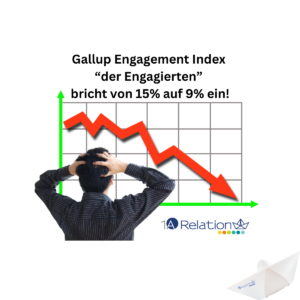It’s a hot topic: Standard or individual software?
“Sorry, I didn’t have time to write, so the letter got a little longer,” Johann Wolfgang von Goethe once said. Paradox? No! Because thinking more about what you want to express in the beginning and then formulating it in an elegant way results in the better letter. This can be transferred almost one-to-one into the software world. In other words, analyzing business processes sensibly and building a custom-made software from them results in an optimal solution – as long as everything is done right. These thoughts, by the way, have also given rise to the now so popular agile software development. Hence the always hotly discussed question: Standard or individual software?
So the provocative question is: “One size fits all” or rather a well thought-out individual solution?
Why does standard software exist at all?
If you take Goethe’s point of view, you might think that standard software is basically the worse solution. Obviously this is not the case, because there are many, very good reasons for standard software:
Often (industry) know-how is programmed into standard software, it specifies processes and methods. This can make a very valuable contribution to organization.
A few sentences about our guest author Franz Wenzel:
Franz Wenzel has a degree in computer science (FH) and ran an IT company together with his partners from 1994 to 2014. In 2014, the 380-employee stock corporation for individual solutions was sold to a French group.
Currently Franz Wenzel is Managing Partner at the consulting company crescado GmbH (www.crescado.com) and at the community software company congreet GmbH (www.congreet.com).
The congreet software enables the creation of expert networks and offers an event networking tool.
Standard software is less expensive!
This is definitely true when it comes to commodity software, such as financial accounting. Size and complexity can only be controlled by standards.
Standard or individual software: If an international group wants to consolidate the sales figures from several countries, for example, these national companies must provide the figures in a comparable, i.e. standardised form. This can also be done in the form of internal standards – but with standard software this is already “built in”. And last but not least, even if the customer commissions an external service provider, he must provide more of his own technical and process know-how for an individual solution, whether in the area of software development methods or in the operation of IT solutions.
Is standard software really always cheaper?
The biggest myth to be cleared up is the price. Standard software is not cheaper – at least when you think in terms of large systems like SAP. Of course it is cheaper to buy accounting software from e.g. Lexware for a few hundred euros than to have it programmed yourself.
However, this changes as soon as the solutions become more complex and above all customizing is required. Large systems are not cheap per se, but the further you move away from the standard processes, the more expensive customizing becomes.
I have often experienced that the cost of customizing was higher than what we had estimated for a new implementation. In times of agile software development, you can focus on the things you really need and don’t have to bend yourself or the standard software.
Does the software adapt to the company or the company adapt to the software?
“Well, let’s just not change the standard software,” I’ve heard CEOs say many times. That makes it cheaper. And above all, there is structural support for inexperienced employees, for example.
In my career, I have seen time and again that companies wanted to use standard software because they didn’t know their business and wanted to buy the processes and know-how encoded in the software. You can do that.
Surely it cannot be the claim of a company that employees are controlled by software. If that is the claim of your company, then you should take a look at the management level. I think you will mainly meet “administrators”, not people with visions who want to shape the future. Here again, I would like to take the example of accounting – it makes no sense to want to do this differently than the market companions. But is it about processes and approaches and that competitive advantages should result from them? Then you should certainly not be satisfied with “standard”.
Standard or individual software: It’s all about manageable size and complexity
Standards are there to unify things. This makes particular sense when these things are difficult to control because of their sheer size or complexity. IT is ultimately nothing other than standardization. Especially high complexity, which can be implemented by standard software, speaks for the use of this, because individual software can then become very expensive. However, if customizing is necessary for complex things in a standard software not intended for this purpose, the prices for an introduction will explode.
Mastering software – that only works with internal know-how
Unfortunately, you need internal know-how to use software. And with individual software this is much more than with standard software. With individual software development, there is a great danger that a customer is led into a disaster project by inexperienced or dubious providers. This know-how for the software development process from a requirements point of view and also a certain basic technical understanding can certainly be learned, but the customer must want this. Unfortunately, the mentality often prevails that a customer has ideas but does not articulate them well and is disappointed in the aftermath. Especially agile software development has some very good solutions for this. But the customer has to get involved and at the same time be willing to learn things.
What now: standard software or individual development?
Agile approach has reopened closed doors for individual software. It is also easier to implement individual solutions if you have some technical know-how in-house. But above all, it is also important to find the right development partner. Look for references and talk to other customers of a possible partner. Serious software houses are always willing to do this.
There is no “that’s right”.
I suggest to keep it with Goethe. Thinking helps before you start. The first step is analysis. For this you can call in experienced external consultants. Consider using a standard CRM, for example, talk to people who have an overview of the market and can analyse your needs. My personal recommendation: Georg Blum from 1A Relations GmbH. Experts like him have a good eye for whether what you are doing is a competitive advantage that must be maintained at all costs. Or is it better to depict one or the other with standard processes
Note: This is a machine translation. It is neither 100% complete nor 100% correct. We can therefore not guarantee the result.












